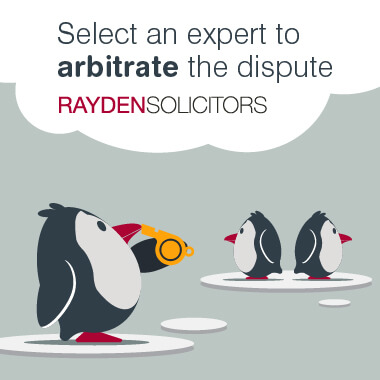

ALTERNATIVE DISPUTE RESOLUTION SOLICITORS
What is Alternative Dispute Resolution?
If your relationship has ended and you are separating, whatever your circumstances, you are fortunate that there are so many processes open to you to try and help ensure that your separation and the legal untangling from your relationship is dealt with in a humane, amicable and constructive manner.
There are several dispute resolution mechanisms that you can choose, together with your former partner, to try and ensure that matters are resolved swiftly and effectively with minimal time and costs.
What are the benefits of Alternative Dispute Resolution?
Dispute Resolution in family law gives you the opportunity to take control and come to an agreement if you can. You can find solutions to issues that really matter to you rather than the court deciding for you. One of the many advantages of an alternative dispute resolution approach is that you tend to come out of it with less animosity and having worked together to conclude your relationship as well as you can. The financial costs of alternative dispute resolution will also be significantly lower than the traditional court process.
You need to think about not just the financial costs but the emotional costs of having a case that may run for a long time, disrupting your life, making things difficult as former partners, and if you are parents, it can really interfere with the new dynamic of a separated family which can be difficult enough anyway. If you choose alternative dispute resolution, it can be dealt with more quickly than the traditional court process, you can have a swifter decision and both of you can move on with your life sooner.
I cannot tell you what a huge impact your arbitration has had on me Julian. Your clear, thorough, even-handed communication, your decision, and your interpretation of how our divorce process has gone, left me feeling hugely relieved and vindicated. I am incredibly grateful for your time and patience.
Arbitration Client of Julian Bremner
I just wanted to take the time to thank you for facilitating a successful outcome to our mediation process. We both found your guidance extremely helpful and we now look forward to the successful conclusion of the process.
Mediation Client of Claire Howard
Alternative Dispute Resolution – Require some help? Contact us

Mediation
This is an excellent process which enables two parties who can speak to each other, on a level playing field, hold discussions to reach an agreement. A mediator does not take sides or advise you as to the law, but helps you come to a constructive agreement that suits you both.

Arbitration
This is a brilliant option for you if your positions have become polarised or you have been partially successful in agreeing a settlement in mediation but there are other points outstanding, or you simply want the bespoke benefits of an out of course process which still leads to a swift and final determination.

Collaborative law
This is a great process where, with a specifically trained collaborative lawyer you and that lawyer, together with your former partner and their collaborative lawyer, will work together, in a series of four-way meetings to come to an agreement.
For professionals
If you are a solicitor or other professional working in family law and have clients who might require the services of a family law arbitrator (financial or children), collaborative lawyer, or mediator, we have qualified experts across all alternative dispute resolution specialisms.
Meet our Dispute Resolution Team
Julian Bremner
Executive Partner and
Financial Arbitrator
Emily Watson
Executive Partner and
Children Arbitrator
Lehna Gardiner
Partner and
Collaborative Lawyer
Che Meakins
Partner and
Mediator
Bhini Phagura
Associate Solicitor and
Collaborative Lawyer
Claire Howard
Senior Associate Solicitor and
Mediator
Dispute Resolution FAQs
How long does Alternative Dispute Resolution (“ADR”) take?
The simple answer is that dispute resolution takes as long as it needs to – no longer, no shorter. It is always bespoke to you.
For example, in mediation, some couples are able to resolve their issues within one session. Others may take several sessions with their mediator to come to a resolution that suits them both.
Equally, with arbitration, your arbitration hearing is able to take place as soon as is convenient for all parties and all the requisite steps that need to be taken to enable a decision to be made are in place. So, some arbitrations can be dealt with within a fortnight and others may take a month or two.
The important point to note is that ADR process is led by you as the participants. So, it fits in with your timing and your respective needs.
Either way, it is considerably swifter than the court process, over which the participants have no control, and which, beginning to end, can take over 2 years.
Does my lawyer work with me throughout the process?
Yes. Your solicitor is available to engage with you throughout this process, whichever type of ADR you may choose.
In collaborative law, that process involves your and your solicitor and the other party and their solicitor working together constantly to come to a resolution.
In mediation, it is important to have some preliminary advice from your solicitor before engaging in mediation (just so you know what is and is not possible) and, between mediation sessions, you can have discussions with your solicitor for ideas and observations. You can also involve your solicitor by way of hybrid mediation where your solicitor attends the mediation sessions with you.
In arbitration your solicitor can be involved as much or as little as you like in the process. Arbitration can be undertaken without solicitors or with solicitors helping you in the background or with solicitors being a party to the proceedings it is your choice. to be added
Are there situations where ADR does not work?
Absolutely not.
ADR can work in any situation and in any factual matrix. Mediation, collaborative law and arbitration are all designed to be able to work with parties (including in domestic abuse situations) so that option is always available to you.
Is ADR compulsory in the UK?
Attending a MIAM (Mediation Information & Assessment Meeting) is compulsory before commencing court proceedings. The court will want to know that you have at least had the opportunity to discuss with a specialist mediator the various ADR options open to you.
However, there have now been several judgements from the courts confirming that the court views ADR as highly important and the court can stop your litigation process if the Judge believes that you have not undertaken the necessary ADR steps to resolve matters out of court.
Further, in financial proceedings, the rules of court have been changed to place increasing pressure on the parties to consider, and undertaken, ADR as part of the process. This includes having attended mediation, a neutral early evaluation/pFDR (Private Financial Dispute Resolution Hearing) or undertaken arbitration. There are cost penalties that can apply for failing to take the right ADR steps.
What happens after a Dispute Resolution Hearing (“DR”)?
In children’s matters, if you are able to come to an agreement through DR then you and your co-parent can simply move forward with your agreement, without necessarily needing to take any steps to have that agreement ratified by the court. If you are already in Children Act proceedings, then a Consent Order, reflecting your agreement, can be filed.
In financial matters, it is important to have a court order severing the financial ties between you and your agreement, whether arising out of mediation, collaborative law or arbitration, can be converted to an Order of the court. Your solicitor will help you with this.
Contact us for dispute resolution advice
If you would like to arrange a first meeting or have any questions, please contact us or fill in the enquiry form below.
"*" indicates required fields













